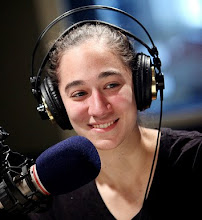SPOILERS AHEAD!
White hat DA Harvey Dent is transformed into the murderous Two-Face when he is caught in one of the Joker's plots. His girlfriend is killed and he is horribly disfigured. The Joker comes to see him in the hospital, stokes his anger, and frees him, a weapon with only one purpose, revenge.
The film tries to spin Dent's fall as a big victory for the Joker. The white hat loses hope and declares that in an immoral world, the best one can do is follow the dictates of chance. But where is the triumph? The proof that even the strongest have a breaking point is trivial. Besides, Dent's fall is more a conversion of convenience than a genuine reawakening. The Joker redirects Dent's desire for vengeance and gives him a new avenue to express it, but, unlike the Joker, Dent's nihilism is wholly subsumed in his desire for revenge. The Joker is an absolute force, the avatar of chaos, and he is unstoppable. Dent is too limited to be anywhere as scary. Once the targets of his revenge are eliminated, his motivation is spent, and he is defanged.
So could Dent become anything to match the power and terror that the Joker inspires? Maybe, but I think it would entail less of a fall than a rise. In A Wizard Alone, the sixth book in Diane Duane's Young Wizards series, Nita, one of the protagonists, encounters an abdal, a force of pure goodness, a conduit of the One's power into the world. But just because they're on our side doesn't make them pleasant to be around. Nita's mentor warns her that abdals mean
"Virtue, the real thing. It's not some kind of cuddly teddy bear you can keep on the shelf until you need a hug. It's dangerous... Virtue has its own agenda, and it's not always yours. The word itself means strength, power. And when it gets loose, you'd better watch out."Abdals are goodness, but they are so powerful that when they burn the dross off of us, there might not be anything left. This is the direction I thought Dent was going in, especially since he had gotten his start investigating Internal Affairs for the police. Throughout the movie, he harasses the police commissioner over his use of dirty cops, while the commissioner argues he has to make some compromises to have any officers at all. These are the dirty cops that help the Joker maim Dent and murder his girlfriend.
"Something bad might happen..."
"Impossible. But possibly something painful."
A Harvey Dent fueled by uncompromising virtue is the absolute force to oppose the Joker. (The Lawful Good to his Chaotic Neutral/Evil). Both are forces of destruction. Human beings, inherently flawed but striving for order, can't live with either.

1 comment:
I like that take. The way I read the initial scene was not just that Jim Gordon felt he was making compromises, but that he actively disbelieved Dent's allegations to begin with (thus, Harvey Two-Face). Leaving aside the heavy foreshadowing on the corrupt officers, I think I was inclined to believe Lt. Gordon as the character closer to the main protagonist (Batman) until Dent goes dark and finds that his original assertions are correct.
Oh, and I HATE the Batman reverberation effect. You know who needs that? Superman, because he doesn't even wear a mask. Batman, not so much.
I think I'll go read the whole Mafia's take now...
Post a Comment